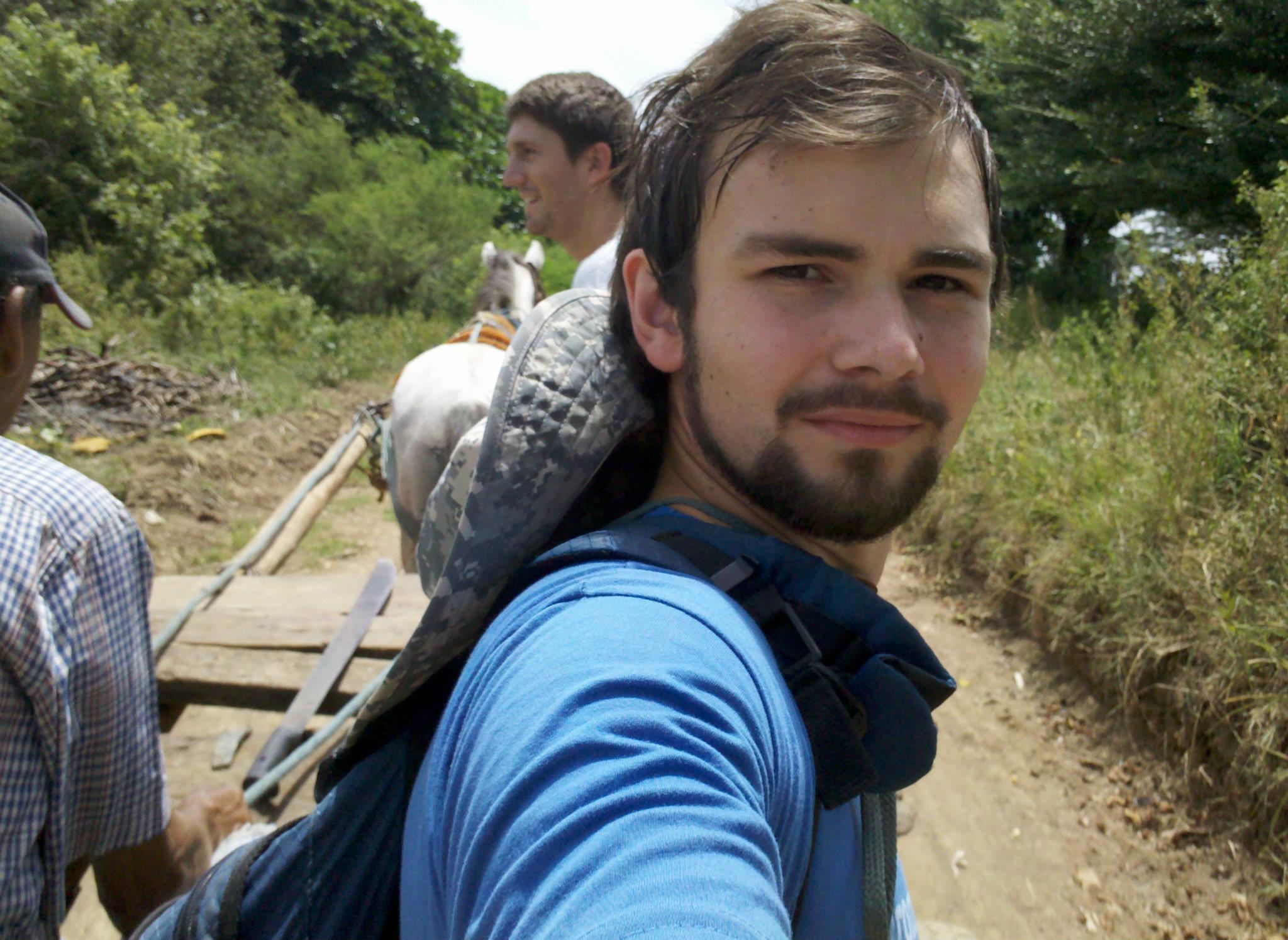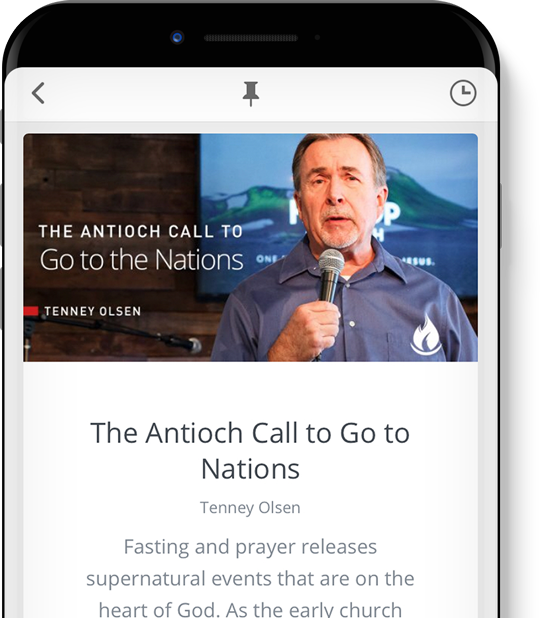This is a guest post from staff member Jonathan Nicholson. These guest posts are a part of a series of encouraging devotionals during this time of global disruption.
Everyone battles anxiety, but the Bible offers a clear strategy for victory. This article explores that strategy as it appears in Philippians 4:6-8.

“Where’s Paul?” I asked Luis. Luis hadn’t seen him. No one had since we’d returned from Barrio Nuevo, smeared with dirt and drenched in sweat, nearly an hour before. I had only been staying with Paul in the ministry center for about a week, but I already knew it wasn’t like him to just wander off. Luis began searching the village while I stayed home in case Paul turned up. Time passed. He didn’t. The sun began to set. Still no Paul.
It was July 17, 2012, a significant day for two reasons. First, it was the day we and a team of American high schoolers began construction on a small plot of dust and scrub on the outskirts of Barrio Nuevo. We spent the afternoon digging, carrying cement blocks, hauling wheel-less wheelbarrow loads of sand and cement, and setting up what would become an art piece in the center of a new park, a gift to the village.

The second reason July 17 was significant was because of something Paul offhandedly mentioned to Luis while we worked. He made some remark about how interesting it was that we just happened to be breaking ground on the exact date that Ernesto had warned us about. “Who’s Ernesto?” I asked. Paul explained. Ernesto was a crooked pastor who set up churches in little towns and manipulated the people into giving him money. Ernesto had cast a covetous eye on the very field where we stood, but in the end, the landowner had decided to sell it to our ministry rather than to him. A sore loser, Ernesto vowed revenge: “I have a surprise for you on July 17,” he threatened enigmatically.
“I have a surprise for you on July 17,” he threatened enigmatically.
I quickly forgot about Ernesto–that is, until Luis came back just before dark, flanked by an army of local children who knew and loved Paul. They’d scoured the village. Still no sign of Paul.
At this point, we decided it was necessary to call the head of our ministry who was hosting the high schoolers at a compound some distance away. I delivered a quick message, throwing in what Ernesto had said, but before I could give a thorough explanation, Luis’ phone–the only phone around–ran out of battery. “Great,” I thought. “Now we can’t communicate with the team. I wonder what they’re going to do.”

We stumbled along the dark dirt paths, the children crying, “Pablo! Pablo!” from every direction. When all this began, I was a little anxious, but every time I tried to intercede for Paul, I felt a strange sense of peace and couldn’t go very deep in prayer. By now, though, I was pretty anxious, pressed down by the responsibility I felt as one of only two adults at ground zero of this disaster.
How should we deal with anxiety? The answer is the same whether our anxious thoughts are rational or irrational, and we can sum it up in these seven words: “Do not fret—it only causes harm” (Psalm 37:8b, NKJV). Or, in the words of the Apostle Paul:
“Be anxious for nothing, but in everything by prayer and supplication, with thanksgiving, let your requests be made known to God; and the peace of God, which surpasses all understanding, will guard your hearts and minds through Christ Jesus. Finally, brethren, whatever things are true, whatever things are noble, whatever things are just, whatever things are pure, whatever things are lovely, whatever things are of good report, if there is any virtue and if there is anything praiseworthy—meditate on these things.” (Philippians 4:6-8, NKJV)
Each verse of this passage presents a distinct step toward overcoming anxiety. Verse 6 says we should “be anxious for nothing,” choosing to dialogue with God instead of our anxiety. Don’t carry your burdens alone; “let your requests be made known to God,” knowing He longs to shoulder the weight for you. As Peter writes, “Cast all your anxiety on him because he cares for you” (1 Peter 5:7, NIV). And mingle your prayers “with thanksgiving.” This helps us “enter into His gates” (Psalm 100:4, NKJV), into the peace of His presence. Also, giving thanks for His faithfulness in the past reminds us that He is just as faithful today (see Hebrews 13:8).
“Does any part of Philippians 4:6-8 tell us to go into denial about our anxieties? No, it starts with presenting our anxieties to God (verse 6), and sometimes, that means confronting them at the deepest level with His help.”
When we follow verse 6, we partake of the great exchange in verse 7: our anxiety for His peace. “And the peace of God, which surpasses all understanding, will guard your hearts and minds through Christ Jesus.” We trade the load of our anxieties for His easy burden and His light yoke; only then can we find rest for our souls (see Matthew 11:28-30).
Finally, verse 8 tells us to “meditate” on good things. Often, we separate this verse from verses 6-7, but I find it just as useful in combating anxiety as the previous two. For one, if we’re meditating on that which is “true,” “noble,” “just,” “pure,” “lovely,” “of good report,” virtuous, and “praiseworthy,” we are doing so in place of meditating on the fears or circumstances that make us anxious. I believe verse 8 relates closely to Psalm 1 where we see the stability of someone who meditates on the Word “day and night,” ever prospering like a tree beside rivers of water. After all, the Word is “true,” “noble,” “pure,” etc. And so is God Himself. Here is a powerful promise of what happens when we meditate on the person of God: “You [God] will keep him in perfect peace, whose mind is stayed on You, because he trusts in You” (Isaiah 26:3, NKJV). Verse 8 is not just about slaying anxiety in the moment; it is about abiding in peace, crowding out anxious thoughts with the overwhelmingly good news of God’s Word and nature.
Does any part of Philippians 4:6-8 tell us to go into denial about our anxieties? No, it starts with presenting our anxieties to God (verse 6), and sometimes, that means confronting them at the deepest level with His help. Or does any part of Philippians 4:6-8 give us permission to disengage from reality when it worries us? No. Though Jesus slept through the storm in Mark 4:35-41, he did not remain asleep when it came time to act. We do not meditate on the good by denying the existence of the bad; we focus on the highest reality–God’s goodness–so that we have peace and perspective to confront the storm.

Somehow, I had a sense that we would find Paul not far from where we had last seen him. Sure enough, we spotted him in a tranquil greenspace beneath a low-spreading tree, maybe a quarter of a mile from the contested field. He had just gone off to pray. We breathed a great sigh of relief, especially our ministry leader who later said, “I just knew Paul was tied up in a basement somewhere! I got the team together, and we went into heavy intercession.” At the beginning, I had been unable to worry too deeply or intercede hard. Had God been reassuring me? Why hadn’t I listened better? Anxious or not, I would have enlisted the help of the village to search for Paul. Did my anxiety improve our efforts? Not at all. “Do not fret—it only causes harm.”
Today, remembering this bizarre story makes me all the more eager to follow the instructions in Philippians 4:6-8, knowing that we are more effective when centered in God’s peace, even when we have no choice but to enter the storm. May we never forget to remain in His peace.
 By
By 
